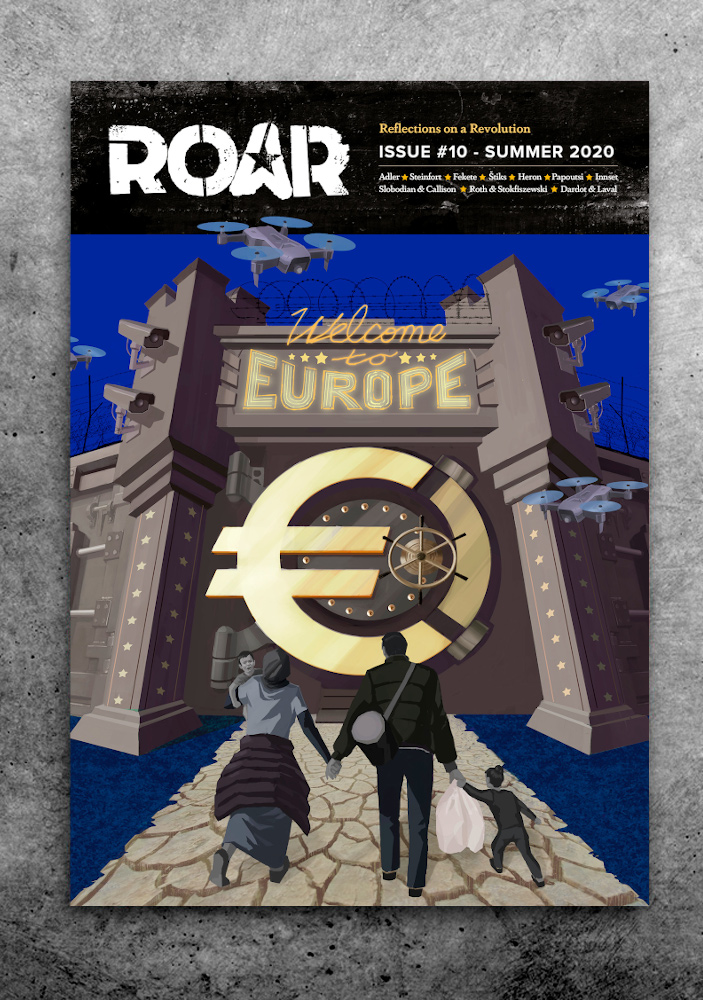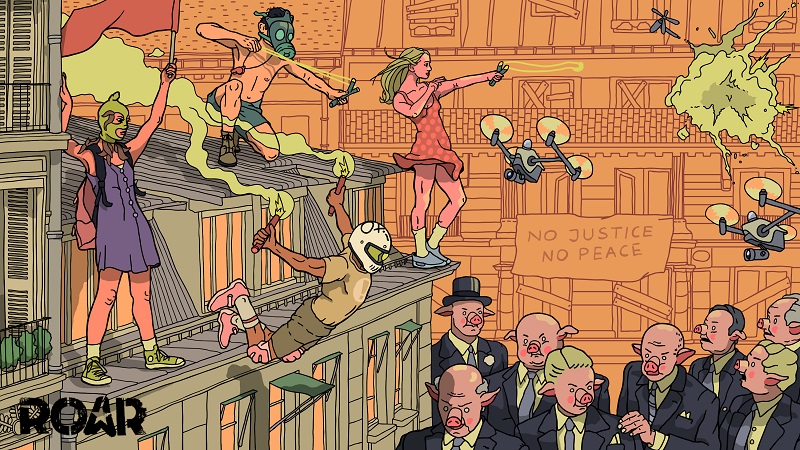Editorial
A united Europe can play an important role in navigating the global challenges and planetary emergencies of our time. But to do so, it will have to change from within.
A Europe in Common
- Issue #10
- Author
Europe is living through its biggest crisis in nearly a century. The coronavirus pandemic and resulting economic crash have exposed profound weaknesses at the very heart of the European project, posing a major challenge to the future of European democracy and raising fundamental questions about the importance of international solidarity.
As soon as disaster struck, in March this year, the core values that once inspired the continent’s commitment to an “ever closer union” were thrown out of the window: countries closed their borders, hoarded medical supplies and banned the export of essential protective gear to their neighbors in need. The gaping divide between the North and South widened, with countries like Austria and the Netherlands refusing to come to the aid of Italy and Spain, among the hardest hit countries in the world, or the much poorer Balkan states.
Solidarity was lacking not only between states, but also within them. Public health and social security systems that had been gutted by decades of neoliberal cuts and privatizations left hundreds of thousands of people — patients, medical personnel and frontline workers alike — at the mercy of chance, goodwill and supposed “heroism.” And while major corporations like the big airlines were bailed out, millions of families struggled to pay their rent and bills.
But the decay had set in long before COVID-19. The Eurozone debt crisis of 2010–15 sparked an anti-austerity movement that brought millions out into the streets and squares across Europe. The influx of over a million migrants and refugees in 2015 triggered a racist backlash and caused a wave of xenophobia upon which several nationalist right-wing parties comfortably sailed to power.
The Gilets Jaunes burst onto the scene in France in late 2018 as a highly diverse and decentralized explosion of popular anger against a government that pretended to address the climate emergency over the backs of the working class, while shielding elites from financial harm. The current Black Lives Matter protests in response to the police killing of George Floyd in the United States show that Europe itself is still a long way from coming to terms with its colonial past and its deep-seated institutional racism.
Meanwhile, Brexit marks the first time a member state has left the European Union, reversing an integration process that had long been held up as irreversible. But where Britain decided to leave, many post-socialist states in the East are left with a feeling that they never actually joined. Upon their integration into the EU in the early 2000s, they were promised economic prosperity and a seat at the table, only to discover that the menu had already been set — and that it was a meager feast altogether.
The outcome of today’s turmoil remains uncertain. The road leading out of the crisis can still bend in many different directions. But as long as the European left remains stuck on the sidelines, leaving the stage to right-wing nationalist parties, the Europe of the future will be far removed from the democratic and internationalist ideals it has so loudly proclaimed over the years.
There is now a real danger that criticism of the EU’s democratic deficit will be hijacked and monopolized by the far-right. To prevent such a catastrophic political outcome and a headlong retreat into the nation state, progressive forces will need to articulate a vision for a radically democratic and thoroughly decolonized Europe — a Europe that is much more responsive to the interests of its citizens, more welcoming of migrants and refugees, and more cognizant of its historical obligations towards the Global South.
 In this tenth issue of ROAR Magazine, we take a critical look at the state of democracy in Europe today. The essays collected here tell the inspiring stories of social movements around the continent — from the Gilets Jaunes in France and the “rebel cities” of Spain, to the (re-)municipalization of the energy infrastructure taking place in a number of countries. At the same time, the issue also points to some of the challenges faced by these movements, in the hope that we can learn from their experience to claim even bigger victories in the future. After all, the most important struggles still lie ahead, especially in light of the greatest crisis of all: the climate emergency, for which Europe itself bears no small responsibility.
In this tenth issue of ROAR Magazine, we take a critical look at the state of democracy in Europe today. The essays collected here tell the inspiring stories of social movements around the continent — from the Gilets Jaunes in France and the “rebel cities” of Spain, to the (re-)municipalization of the energy infrastructure taking place in a number of countries. At the same time, the issue also points to some of the challenges faced by these movements, in the hope that we can learn from their experience to claim even bigger victories in the future. After all, the most important struggles still lie ahead, especially in light of the greatest crisis of all: the climate emergency, for which Europe itself bears no small responsibility.
By now, the capitalist catastrophism of our age has firmly settled in our collective mind, blurring our horizons and shrouding our image of the future in dark clouds of pessimistic survivalism. But it does not have to be like this. The current mobilizations taking place across the Atlantic world, responding to deeply ingrained racism and the enduring legacies of five hundred years of European colonialism, are a hopeful reminder that the radical imagination is alive and well.
A united Europe can play an important role in navigating the global challenges and planetary emergencies of our time. But to do so, it will have to change from within. We have to reject this Europe in which our lives are shaped by technocratic institutions and multinational corporations, and fight for one that is built from the bottom up, radically democratic and thoroughly solidaristic — a Europe that is truly held in common.
Source URL — https://roarmag.org/magazine/a-europe-in-common/
Next Magazine article
Exit Closed
- David Adler
- June 17, 2020
Workers of Europe: Compete!
- Ola Innset
- June 17, 2020


